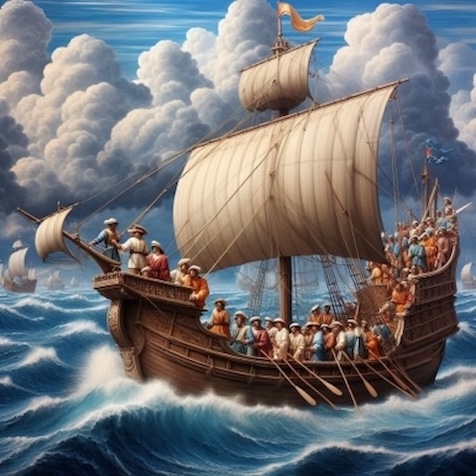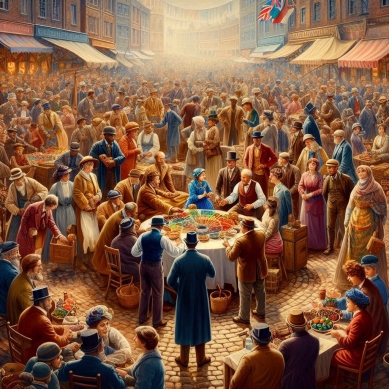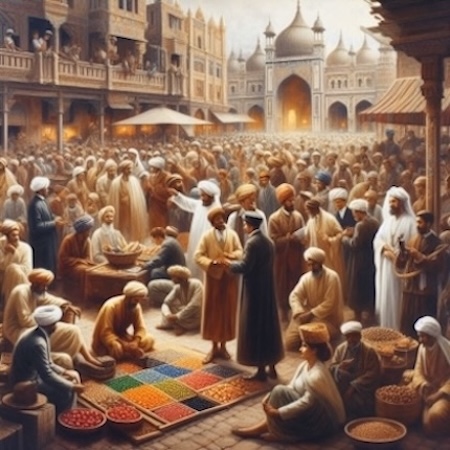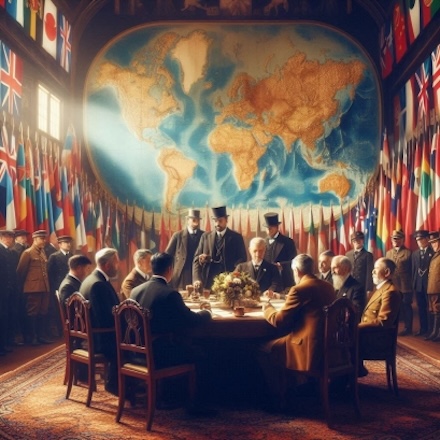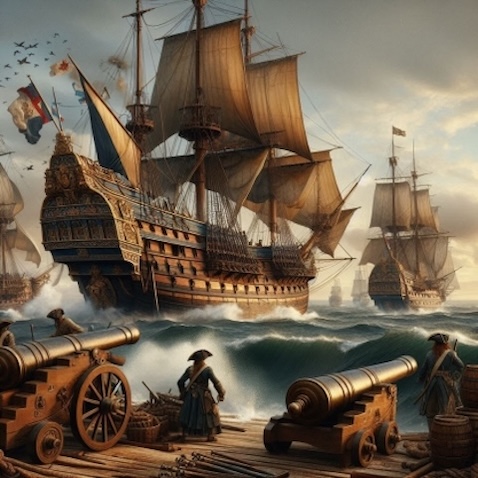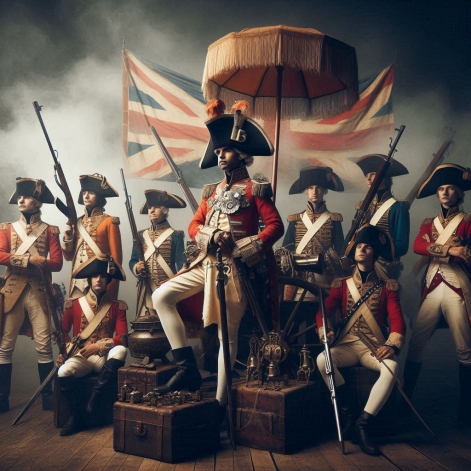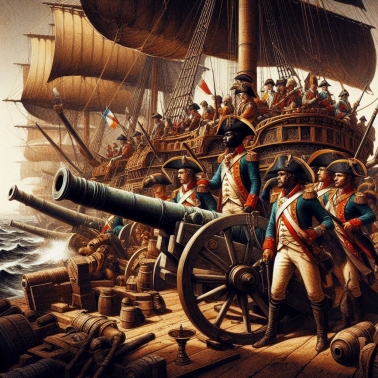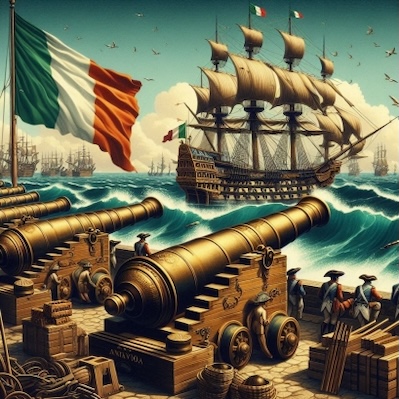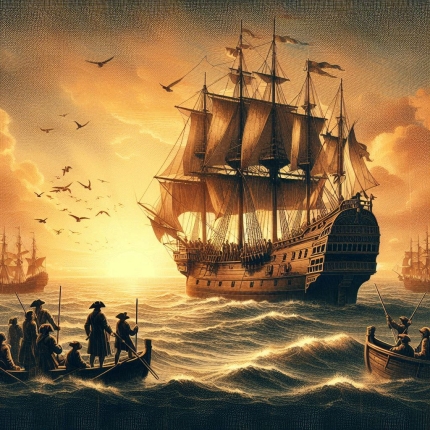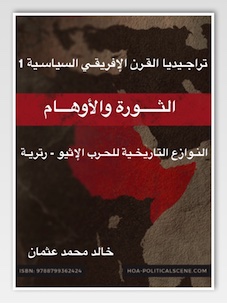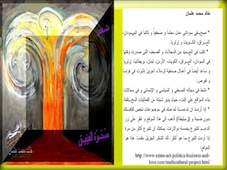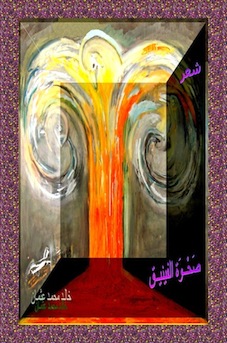The pre-Cold War Era of Colonialism and Imperial Rivalries (15th Century _ Mid-20th Century)!
The pre-Cold War Era of Colonialism and Imperial Rivalries, spanning centuries before the ideological and geopolitical tensions of the Cold War, was fundamentally shaped by colonialism and imperial rivalries. European powers, alongside other regional empires, engaged in territorial expansion, resource extraction, and power struggles that defined global politics in ways that continue to influence the world today.
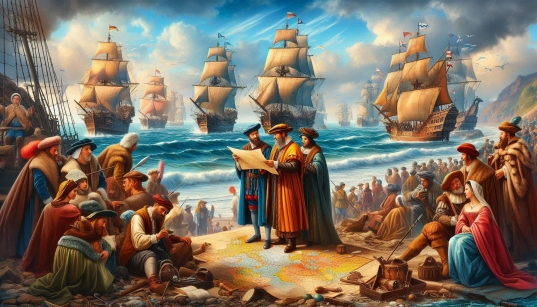 The pre-Cold War Era of Colonialism and Imperial Rivalries (15th Century - Mid-20th Century): 15th Century, European Spanish exploration.
The pre-Cold War Era of Colonialism and Imperial Rivalries (15th Century - Mid-20th Century): 15th Century, European Spanish exploration.Intro - Why Am I Connecting this Era to HOA?
The Horn of Africa stands as a testament to the far-reaching consequences of colonial ambitions and imperial rivalries. Long before Cold War ideologies shaped global dynamics, European powers and regional empires battled for control over trade routes, strategic territories, and vital resources in this crucial gateway between Africa, the Middle East, and Asia.
The colonial presence, diplomatic maneuvering, and military interventions in the Horn were not just isolated events but an extension of a broader geopolitical struggle that determined the fates of nations worldwide.
This era of colonialism and imperial rivalries is key to decoding the foundations of modern political and economic structures in the region, where echoes of historical power plays still shape governance, conflicts, and alliances today. By tracing these threads from colonial exploits to contemporary challenges, we unravel the deeper historical forces that continue to shape the Horn of Africa’s role on the global stage.
Context & Connection!
Understanding the pre-Cold War era of colonialism and imperial rivalries is not just an academic exercise. It provides a crucial lens through which we can analyze the larger historical forces that shaped different periods. The themes explored here... territorial expansion, resource competition, and economic motivations are deeply interconnected with the narratives examined across the articles that follow:
- Why Expanding Horn Africa to Include Other States and Global Impacts?
- A New Era of Chaos and Distrust is Shaping!
- Pre-Cold War Era of Colonialism & Imperial Rivalries!
- Pre-Cold War American Expansionism!
- The Cold War Era: A Battle of Ideologies and Influence!
- Why Do Nations Fragment When Unity is Their Greatest Strength?
- The Sudanese Muslim Brothers and the U.S. have Created Int Terrorism!
- Eritrea Was Too Late to Independence Due to Colonial Conspiracies!
- Namibian Road to Independence From Liberation to Sovereignty!
- The Post-Cold War Era: A Shifting Global Landscape!
- How Economics, Ideology, and Geopolitics Fragment Nations and Create New Ones?
- New World Order: Stability or Chaos?
- Why Am I Saying A New Era of Disorder and Doubts is Shaping?
Each article builds upon key developments and shifts in power dynamics, reflecting the transformation of global politics from early imperial conquests to post-colonial struggles. By tracing these patterns across different eras, we uncover not only the motivations of empire builders but also the lasting consequences of colonial rule, economic structures, and geopolitical conflicts that still shape our world today.
Defining the Pre-Cold War Era!
The pre-Cold War Era broadly covers the period from the late 15th century marked by European exploration and the beginning of overseas colonization through the mid-20th century, culminating in the aftermath of World War II.
During this time, powerful nations competed to establish control over vast territories, shaping economies, cultures, and political systems across the globe. Imperial strategies varied from direct rule to economic and diplomatic influence, but the overarching motive was maintaining dominance through territorial acquisition and resource exploitation.
This era broadly covers the period from the late 15th century marked by European exploration and the beginning of overseas colonization through the mid-20th century, culminating in the aftermath of World War II.
During this time, powerful nations competed to establish control over vast territories, shaping economies, cultures, and political systems across the globe. Imperial strategies varied from direct rule to economic and diplomatic influence, but the overarching motive was maintaining dominance through territorial acquisition and resource exploitation.
The pre-Cold War era, spanning centuries before the ideological and geopolitical tensions of the Cold War, was fundamentally shaped by colonialism and imperial rivalries. European powers, alongside other regional empires, engaged in territorial expansion, resource extraction, and power struggles that defined global politics in ways that continue to influence the world today.
Economies Drove Explorations and Colonisation!
The quest for economic prosperity was the engine behind the great explorations and colonial expansions that reshaped global history. As European powers emerged from the feudal economies of the Middle Ages, the need for direct access to wealth and trade routes became an imperative.
The search for gold, spices, and luxury goods fueled maritime explorations, with nations racing to bypass intermediaries and establish their own monopolies. Portugal, Spain, the Netherlands, and later Britain and France, ventured into uncharted waters, spurred not just by curiosity but by the pressing need to secure their economic dominance. In many ways, colonization was not merely an ideological or strategic pursuit... it was a financial necessity for empire-building.
The Search for Trade Routes & Markets
European nations understood that whoever controlled trade controlled wealth and power. The drive to secure direct access to lucrative markets in Asia, Africa, and the Americas led explorers to navigate perilous seas and establish trading posts across the globe. The Portuguese and Spanish spearheaded early exploration, seeking gold in the Americas and spices in Asia.
Soon after, the Dutch, British, and French followed, using maritime superiority to carve out profitable trade monopolies. These ventures were not simply about discovery but about disrupting existing supply chains and eliminating intermediaries, ensuring maximum economic gain for colonial powers.
Resource Exploitation & Labor Systems
Upon reaching distant lands, colonizers swiftly transitioned from explorers to exploiters. The natural wealth found in Africa, the Americas, and Asia including precious metals, fertile lands, and valuable crops became the foundation of imperial economies. The extraction of these resources relied on forced labor, slavery, and coercive trade policies that enriched colonial powers at the expense of native populations.
Economic systems were restructured to serve foreign interests, ensuring a constant flow of goods back to Europe while leaving local economies dependent, unstable, and vulnerable. The plantation economies in the Caribbean, diamond and gold mines in Africa, and the opium trade in Asia illustrate how economic motivations dictated colonial policies, often with devastating effects on indigenous societies.
The Rise of Financial Institutions
The rise of financial institutions further cemented colonization as an economic enterprise. Joint-stock companies such as the Dutch East India Company and the British East India Company operated as both traders and governing entities, wielding immense power over colonial territories.
These corporations set up monopolies, dictated terms of trade, and even wielded military force to protect their commercial interests. Banks and investors in Europe funded colonial ventures, turning exploration into a profitable business model where financial speculations dictated global power dynamics. The exploitation of land, labor, and resources was not merely a byproduct of colonization... it was its very foundation.
Long-Term Economic Consequences
The economic legacy of colonization is still visible today. Former colonies continue to grapple with inherited trade structures that favor former imperial powers, creating cycles of economic dependency and inequality. Resource-rich countries struggle with foreign exploitation and debt systems rooted in colonial-era agreements.
Meanwhile, global financial institutions and trade organizations often reinforce patterns of economic imbalance that date back centuries. Understanding the economic motivations behind colonization is crucial not just for historical knowledge but for recognizing the forces that still shape international economies today.
This era broadly covers the period from the late 15th century marked by European exploration and the beginning of overseas colonization through the mid-20th century, culminating in the aftermath of World War II.
During this time, powerful nations competed to establish control over vast territories, shaping economies, cultures, and political systems across the globe. Imperial strategies varied from direct rule to economic and diplomatic influence, but the overarching motive was maintaining dominance through territorial acquisition and resource exploitation.
The pre-Cold War era, spanning centuries before the ideological and geopolitical tensions of the Cold War, was fundamentally shaped by colonialism and imperial rivalries. European powers, alongside other regional empires, engaged in territorial expansion, resource extraction, and power struggles that defined global politics in ways that continue to influence the world today.
The pre-Cold War Era's Impacts!
During the late 15th and early 16th centuries, European explorers referred to newly encountered territories as the "New World" not "America" as we think of it today. The term "America" as some resources suggest came into broader use after cartographer Martin Waldseemüller published a world map in 1507, naming the landmass after the explorer Amerigo Vespucci. Until then, the Spanish and Portuguese were simply navigating and conquering lands they considered exotic, from the Caribbean to parts of South America.
The Age of Discovery was a thrilling period of exploration, ambition, and global transformation. Spain and Portugal were at the forefront, launching expeditions that reshaped trade, culture, and geopolitics.
Portugal, under Prince Henry the Navigator, pioneered maritime exploration along the African coast, eventually leading to Vasco da Gama’s historic voyage to India in 1498. Meanwhile, Spain financed Christopher Columbus’s transatlantic journeys, opening the Americas to European colonization. The Treaty of Tordesillas in 1494 divided newly discovered lands between the two nations, shaping their colonial empires.
This era wasn’t just about conquest... it also spurred advancements in navigation, shipbuilding, and global trade networks.
The Age of Discovery had profound effects on indigenous societies and global economies, shaping the world in ways that are still felt today.
Impact on Indigenous Societies
Population Decline: European exploration led to the spread of diseases like smallpox, measles, and influenza, which devastated indigenous populations who had no immunity.
- Cultural Disruption: Indigenous traditions, languages, and governance structures were often suppressed or replaced by European systems.
- Forced Labor & Slavery: Many indigenous people were enslaved or forced into labor under colonial rule, particularly in Spanish and Portuguese territories.
- Land Displacement: European settlers claimed vast territories, pushing indigenous communities off their ancestral lands.
Economic Consequences
- Global Trade Expansion: The establishment of trade routes connected Europe, Africa, Asia, and the Americas, leading to the exchange of goods like spices, silver, and textiles.
- Colonial Wealth: Spain and Portugal amassed immense wealth from their colonies, particularly through gold and silver mining in the Americas.
- Agricultural Shifts: Crops like potatoes, maize, and sugarcane were introduced to Europe, transforming diets and economies.
- Labor Systems: The demand for labor led to the transatlantic slave trade, which had devastating human consequences and long-term economic impacts.
Key Colonial Powers!
1. Spain and Portugal (15th-18th Centuries)
The first major global colonial empires, Spain and Portugal pioneered maritime exploration and colonization, particularly in the Americas. Spain established vast territories across South and Central America, driven by gold, silver, and religious conversions, while Portugal focused on Brazil and trade networks in Africa and Asia.
2. Britain and France (17th-20th Centuries)
By the 18th century, Britain and France emerged as dominant imperial players, competing intensely in North America, India, Africa, and Southeast Asia. Britain’s empire was characterized by indirect rule and economic exploitation, while France often pursued direct governance, integrating colonies into its national structure. The British Empire’s global dominance, solidified in the 19th century, earned it the title “the empire on which the sun never sets.”
3. The Netherlands and Belgium (17th-20th Centuries)
The Dutch built a formidable trade empire in the East Indies (modern Indonesia), controlling spice trade and key maritime routes, while Belgium’s brutal colonization of the Congo became one of the most infamous examples of exploitation.
4. Germany and Italy (Late 19th-20th Centuries)
These late entrants into colonialism sought territories in Africa and the Pacific, motivated by nationalism and economic interests. Germany’s African colonies, such as Namibia and Tanzania were short-lived due to World War I, and Italy’s expansions in Libya and Ethiopia were marked by conflict and resistance.
5. Japan (19th-20th Centuries)
Unlike European colonial powers, Japan’s imperial ambitions focused on East Asia, particularly Korea, Taiwan, and parts of China. Inspired by Western models, Japan pursued aggressive expansion to secure resources and strategic advantage.
More Insights on Colonial Powers and Their Impacts!
Spain and Portugal
The 15th to 18th centuries were a fascinating period for Spain and Portugal. These two nations were at the forefront of global exploration, colonial expansion, and maritime dominance. Spain, under rulers like Ferdinand and Isabella, launched the famous voyages of Christopher Columbus in the late 15th century, opening the doors to the Americas. Portugal, meanwhile, spearheaded exploration around Africa and into Asia, with figures like Vasco da Gama making history.
Both countries amassed vast colonial empires and wealth but faced numerous challenges, economic decline, conflicts, and shifts in global power by the 18th century.
Britain and France
Britain and France were two of the most influential colonial powers from the 17th to the 20th centuries, shaping global history through their vast empires.
British Colonization
- North America & the Caribbean: Britain established colonies along the eastern coast of North America, including the Thirteen Colonies, which later became the United States. It also controlled territories in the Caribbean, such as Jamaica and Barbados.
- India & Asia: The British East India Company gradually took control of India, leading to direct British rule in 1858. Britain also expanded into Southeast Asia, including Burma and Malaya.
- Africa: Britain colonized vast regions, including South Africa, Egypt, Nigeria, and Kenya, often exploiting resources and labor.
- Australia & New Zealand: Britain established settler colonies in Australia and New Zealand, displacing indigenous populations.
French Colonization
- North America: France controlled parts of Canada (New France) and Louisiana before losing most of its territories to Britain in the 18th century.
- Caribbean & South America: France held colonies like Haiti, Guadeloupe, and French Guiana.
- Africa: France expanded into North and West Africa, including Algeria, Senegal, and Madagascar.
- Indochina & the Pacific: France colonized Vietnam, Laos, and Cambodia, forming French Indochina.
Impact of Colonization
- Economic Exploitation: Colonies provided raw materials and markets for European industries.
- Cultural Influence: European languages, laws, and customs were imposed on indigenous populations.
- Resistance & Independence: Colonized peoples fought for independence, leading to decolonization movements in the 20th century.
The Netherlands and Belgium
The Netherlands and Belgium had significant colonial histories, though their approaches and territories differed.
Dutch Colonization
- The Dutch East India Company (VOC): Founded in 1602, it was one of the first multinational corporations, controlling trade in Indonesia, Sri Lanka, and parts of India.
- The Dutch West India Company (WIC): Established in 1621, it focused on the Americas and West Africa, including colonies in Brazil, the Caribbean, and New Amsterdam (now New York).
- South Africa: The Dutch established a colony at the Cape of Good Hope in 1652, which later became a key stop for ships traveling to Asia.
- Suriname & the Caribbean: The Dutch controlled Suriname and several Caribbean islands, using them for sugar plantations and trade.
Belgian Colonization
- The Belgian Congo: Belgium’s most infamous colony, controlled by King Leopold II as his personal possession from 1885 to 1908, before becoming a Belgian state colony.
- The exploitation of resources and forced labor led to severe human rights abuses.
- Ruanda-Urundi: Belgium controlled Rwanda and Burundi after World War I, administering them under a League of Nations mandate.
- Economic Exploitation: Belgium extracted rubber, ivory, and minerals from its colonies, often at great human cost.
Both nations played major roles in global trade and colonial expansion, but Belgium’s colonial rule, particularly in the Congo, is remembered for its brutality.
Germany and Italy
Germany and Italy were relatively late to colonial expansion compared to Britain, France, and Spain, but they still played significant roles in global colonization.
German Colonization
- Africa: Germany established colonies in present-day Namibia, Tanzania, Cameroon, and Togo in the late 19th century. German rule was often harsh, with uprisings like the Herero and Nama genocide in Namibia.
- Pacific & China: Germany controlled islands in the Pacific, including parts of Papua New Guinea, and had a concession in Qingdao, China.
- End of Empire: After World War I, Germany lost all its colonies under the Treaty of Versailles.
Italian Colonization
- Africa: Italy controlled Libya, Eritrea, and Somalia, later expanding into Ethiopia in the 1930s.
- Europe & Asia: Italy occupied Albania and had concessions in China.
- Fascist Expansion: Under Mussolini, Italy sought to expand its empire, but World War II led to its collapse.
Both nations had colonial ambitions but lost their territories after global conflicts.
Japan
Japan's colonial expansion in the 19th and 20th centuries was driven by its ambition to become a major global power. The country transitioned from isolation under the Tokugawa shogunate to aggressive imperialism following the Meiji Restoration in 1868.
Key Phases of Japanese Expansion
- Early Expansion (Late 19th Century): Japan annexed the Ryukyu Islands in 1879 and gained Taiwan after defeating China in the First Sino-Japanese War (1894–1895).
- Korea (1910): Japan formally annexed Korea, imposing strict colonial rule and economic exploitation.
- Pacific & China (Early 20th Century): Japan expanded into Manchuria in 1931, establishing the puppet state of Manchukuo. It also controlled islands in the Pacific and had concessions in China.
- World War II (1940s): Japan occupied vast territories across Asia, forming the Greater East Asia Co-Prosperity Sphere, which aimed to create a Japanese-led economic and political bloc.
Impact of Japanese Colonization
- Economic Development: Japan modernized infrastructure in its colonies but primarily for its own benefit.
- Cultural Suppression: Indigenous languages and traditions were often suppressed in favor of Japanese customs.
- Resistance & Independence Movements: Colonized nations, especially Korea and China, resisted Japanese rule, leading to independence movements.
Japan’s empire collapsed after its defeat in World War II, leading to the liberation of its colonies.
Japan's colonial expansion in the 19th and 20th centuries was driven by its ambition to become a major global power. The country transitioned from isolation under the Tokugawa shogunate to aggressive imperialism following the Meiji Restoration in 1868.
Resources: Britannica.com
Imperial Rivalries and Global Conflicts!
The competition among colonial powers fostered intense rivalries, driving conflicts such as the Seven Years’ War, the Napoleonic Wars, and eventually both World Wars. This relentless struggle for global dominance shaped alliances, defined territorial boundaries, and established economic dependencies that later played a crucial role in Cold War geopolitics.
The colonial era significantly influenced the geopolitical tensions that led up to the Cold War. Many colonies pursued independence both during and after WWII, with newly formed nations subsequently aligning with either the Western capitalist bloc or the Communist sphere, while others chose to remain non-aligned. Some colonial powers, like Britain and France, reluctantly relinquished their territories, whereas others, such as Portugal, held onto them for much longer.
Legacy and Transition to Cold War:
The decline of traditional colonial empires began after World War II, as nationalist movements and decolonization efforts gained momentum. Newly independent nations emerged from colonial rule, yet the Cold War’s ideological divide between capitalism and communism largely determined their political trajectories.
Understanding this era sheds light on modern international relations, illustrating how centuries of colonial ambition set the stage for the geopolitical struggles that followed. The impact of colonial decisions border formations, economic structures, and political instability remains deeply embedded in global affairs today.
The expansionist policies of the United States before the Cold War Era often overshadowed by European colonial narratives played a crucial role in shaping global geopolitics.
The Next Chapters!
Continue following these historical analyses to The Cold War Era: A Battle of Ideologies and Influence! After that follow to the post-Cold War Era. Thanks.
However, before you proceed to the two pages, I encourage you to read the HOA Political Scene with the Global Dynamics below. There are sections there containing these historical eras and the recent one
HOA Global Dynamics Reveals More Insights Connecting the pre-Cold War Era to the Recent Era!
The HOA Global Dynamics have more insightful analyses to the pre-Cold War Era of Colonialism and Imperial Rivalries that connect historical eras together with their economical and geopolitical impacts on world development. They are not just revealing these eras, but they provide the solutions to stop world deterioration.
I began these Universal Global Dynamics Earlier, when I noticed the first steps to shift the global political system during 1989. Developing these universal dynamics has evolved to come up with dynamic solutions that no one has thought of. If you continued reading the sections of the HOA Political Scene Dynamics, you get the insights on how to solve the problems of this world.
It worth to say that, while starting these dynamics to solve world crises and stop any further attempts to shift the global political systems, along with the shifts in the global ecological system I also have planned and executed environmental protection to stop climate change, as it has followed the shift of the global political system and developed in hard global warming and pandemics the world started to experience. So, the crises of the political changes in the world have been accompanied by the crises of ecosystem which has resulted in global warming.
pre-Cold War Era of Colonialism and Imperial Rivalries: Trade Wars Reflect The Hidden Agenda of Free-Market Capitalism! [Latest on The Insight Lens: 2025-04-19] Support me here Incredible videospre-Cold War Era of Colonialism and Imperial Rivalries: Trade Wars from History to Cultural Shock! [Latest on The Insight Lens: 2025-04-19] Support me here Follow the Insight Lens
pre-Cold War Era of Colonialism and Imperial Rivalries: Humanoid Robots Report on Trade Wars: The Global Economic Showdown [Latest on The Insight Lens: 2025-04-22]
pre-Cold War Era of Colonialism and Imperial Rivalries: Trade Wars: China's Grip on Wellness Products! [Latest on The Insight Lens: 2025-04-22]
pre-Cold War Era of Colonialism and Imperial Rivalries: Rivalries: China's Gadget Powerhouse vs. Trade Wars: Who Really Pays? [Latest on The Insight Lens: 2025-04-19]
pre-Cold War Era of Colonialism and Imperial Rivalries: Robot Anchor Reports: Trade War Tensions & Market Reactions! [Latest on The Insight Lens: 2025-04-23]
pre-Cold War Era of Colonialism and Imperial Rivalries: The World is Heating Amid Trade Wars – A Crisis Ignored! [Latest on The Insight Lens: 2025-04-24]
pre-Cold War Era of Colonialism and Imperial Rivalries: Trade Wars - Trump's Tariffs Tango: Strategy or Show? [The Insight Lens: 2025-04-25]
pre-Cold War Era of Colonialism and Imperial Rivalries: Biovians Speak: Trade Wars & Climate Crisis Through Nature’s Voice [The Insight Lens: 2025-04-24]
pre-Cold War Era of Colonialism and Imperial Rivalries: Robots Delivering Breaking News: Today's Global Highlights! [The Insight Lens: 2025-04-25]
What Do You Think of "pre-Cold War Era of Colonialism and Imperial Rivalries"?
Your answer to the question: What do you think of the "pre-Cold War Era of Colonialism and Imperial Rivalries" will provide more depth to the discussions in this network. I don't mind of you have another point of view. Having other perspectives can be good to start a positive discussion. This is a free opinion network.
Have A Great Story About This Topic?
Do you have a great story about this? Share it!
Did you get any of my books from Apple Books?
Click here to tell me & get some free books. Fill the form.
رواية "الموتُ شرقاً" تكشف لك سرّ الموت الشرقي التراجيدي المستمر للإنسان
احصل علي الرواية الآن واكتشف إنهيار القواسم المشتركة، واستلهم إبداعا يشبه الأسطورة في النص الروائي
"Follow", "like", "tweet", or "pin" the pictures to express your love! Thanks
TweetHorn Africa's Political Tragedy
Love in the Internet Time on Apple Books
Rising of the Phoenix Poetry on Apple Books
Free Poetry Picture Book
Free poetry picture book on Apple Books. You can use the images on public places for your customers to enjoy, while taking coffee.
The French & Spanish Versions
You can work the French versions and the Spanish versions of the two books above with me on, one on one bases. Contact Us.
HOAs Political Poetry Imaged
I'll be thankful, if you get one of my books.
My Books!
Publish Your BookLet's be the publishers of your book. Use the form at Contact Us.

